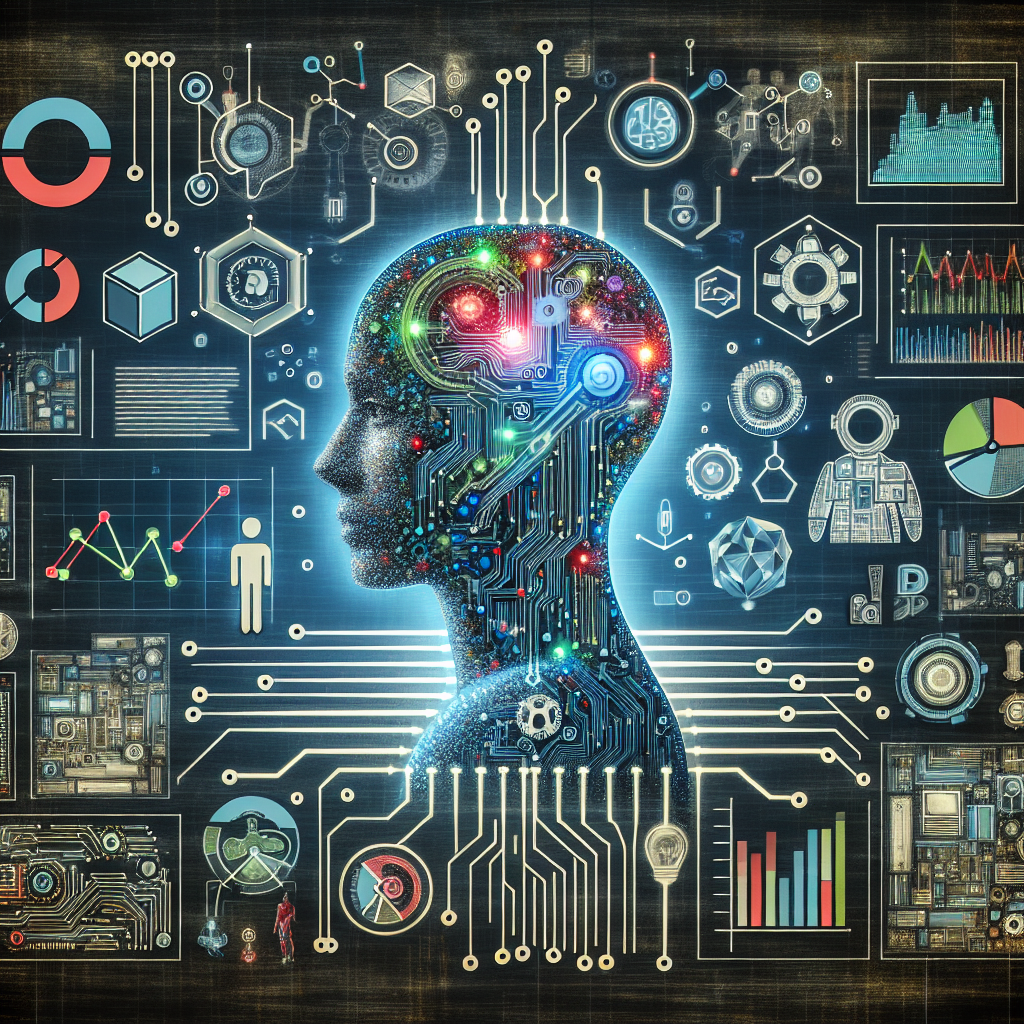In today’s fast-paced business environment, staying ahead of the competition requires making informed decisions based on accurate and timely insights. Business intelligence (BI) has long been a critical tool for organizations looking to analyze data and gain valuable insights into their operations. However, traditional BI tools often struggle to keep up with the massive amounts of data being generated by today’s businesses.
This is where artificial intelligence (AI) comes in. By leveraging the power of AI-driven insights, organizations can enhance their BI capabilities and make more informed decisions that drive business success. In this article, we will explore how AI is revolutionizing the world of business intelligence and how organizations can leverage AI-driven insights to gain a competitive edge.
What is Business Intelligence?
Business intelligence is the process of collecting, analyzing, and presenting data to help organizations make informed business decisions. BI tools allow businesses to gather data from various sources, such as sales, marketing, and customer service, and turn it into actionable insights.
Traditional BI tools typically rely on predefined reports and dashboards to present data to users. While these tools are valuable for analyzing historical data and monitoring key performance indicators, they often struggle to handle the massive amounts of data being generated by businesses today. Additionally, traditional BI tools can be time-consuming and require manual intervention to generate insights.
How AI is Transforming Business Intelligence
Artificial intelligence is revolutionizing the world of business intelligence by enabling organizations to analyze vast amounts of data in real-time and generate insights that would be impossible to uncover using traditional BI tools. AI algorithms can quickly process and analyze data from multiple sources, identify patterns and trends, and provide valuable insights that drive better decision-making.
One of the key ways AI is transforming BI is through predictive analytics. By using machine learning algorithms, organizations can predict future trends and outcomes based on historical data. This enables businesses to anticipate customer behavior, forecast demand, and optimize operations to drive better business outcomes.
AI-driven insights also enable organizations to gain a deeper understanding of their data. By leveraging natural language processing (NLP) and other AI technologies, organizations can extract insights from unstructured data sources, such as social media, emails, and customer reviews. This allows businesses to gain a more comprehensive view of their operations and customer sentiment, enabling them to make more informed decisions.
Another way AI is enhancing BI is through automation. AI-powered tools can automate data collection, analysis, and reporting, freeing up valuable time for employees to focus on strategic decision-making. By automating routine tasks, organizations can reduce human error, increase efficiency, and drive better business outcomes.
How Organizations Can Leverage AI-driven Insights
To leverage AI-driven insights effectively, organizations must first invest in the right tools and technologies. There are a variety of AI-powered BI tools available on the market that can help organizations harness the power of AI to drive better business outcomes. These tools can help organizations analyze data in real-time, uncover hidden insights, and make more informed decisions.
In addition to investing in AI-powered tools, organizations must also ensure they have the right talent and skills in place to leverage AI-driven insights effectively. Data scientists, machine learning engineers, and AI experts are in high demand, and organizations must invest in training and development to build a team capable of harnessing the power of AI.
Finally, organizations must have a clear strategy in place for how they will use AI-driven insights to drive business success. This may involve setting clear objectives, defining key performance indicators, and developing a roadmap for how AI-driven insights will be integrated into the organization’s decision-making processes.
FAQs
Q: What are some common use cases for AI-driven insights in business intelligence?
A: Some common use cases for AI-driven insights in business intelligence include predictive analytics, natural language processing, and automation. Predictive analytics can help organizations forecast demand, anticipate customer behavior, and optimize operations. Natural language processing can help organizations extract insights from unstructured data sources, such as social media, emails, and customer reviews. Automation can help organizations streamline data collection, analysis, and reporting processes, freeing up valuable time for employees to focus on strategic decision-making.
Q: How can organizations ensure they are using AI-driven insights effectively?
A: To ensure they are using AI-driven insights effectively, organizations must invest in the right tools and technologies, build a team with the right skills and expertise, and develop a clear strategy for how AI-driven insights will be integrated into their decision-making processes. Additionally, organizations should regularly monitor and evaluate the impact of AI-driven insights on their business outcomes and make adjustments as needed to drive better results.
Q: What are some challenges organizations may face when implementing AI-driven insights in business intelligence?
A: Some challenges organizations may face when implementing AI-driven insights in business intelligence include data quality issues, lack of expertise and talent, and resistance to change. Ensuring data quality is essential for accurate insights, and organizations must invest in data governance and quality assurance processes to address this challenge. Additionally, organizations may struggle to find and retain top talent with the skills and expertise needed to leverage AI-driven insights effectively. Finally, organizations may encounter resistance to change from employees who are accustomed to traditional BI tools and processes. Effective change management and communication strategies are essential to overcome this challenge.
In conclusion, AI-driven insights are revolutionizing the world of business intelligence by enabling organizations to analyze vast amounts of data in real-time, uncover hidden insights, and make more informed decisions. By investing in the right tools, talent, and strategy, organizations can harness the power of AI to drive better business outcomes and gain a competitive edge in today’s fast-paced business environment.

